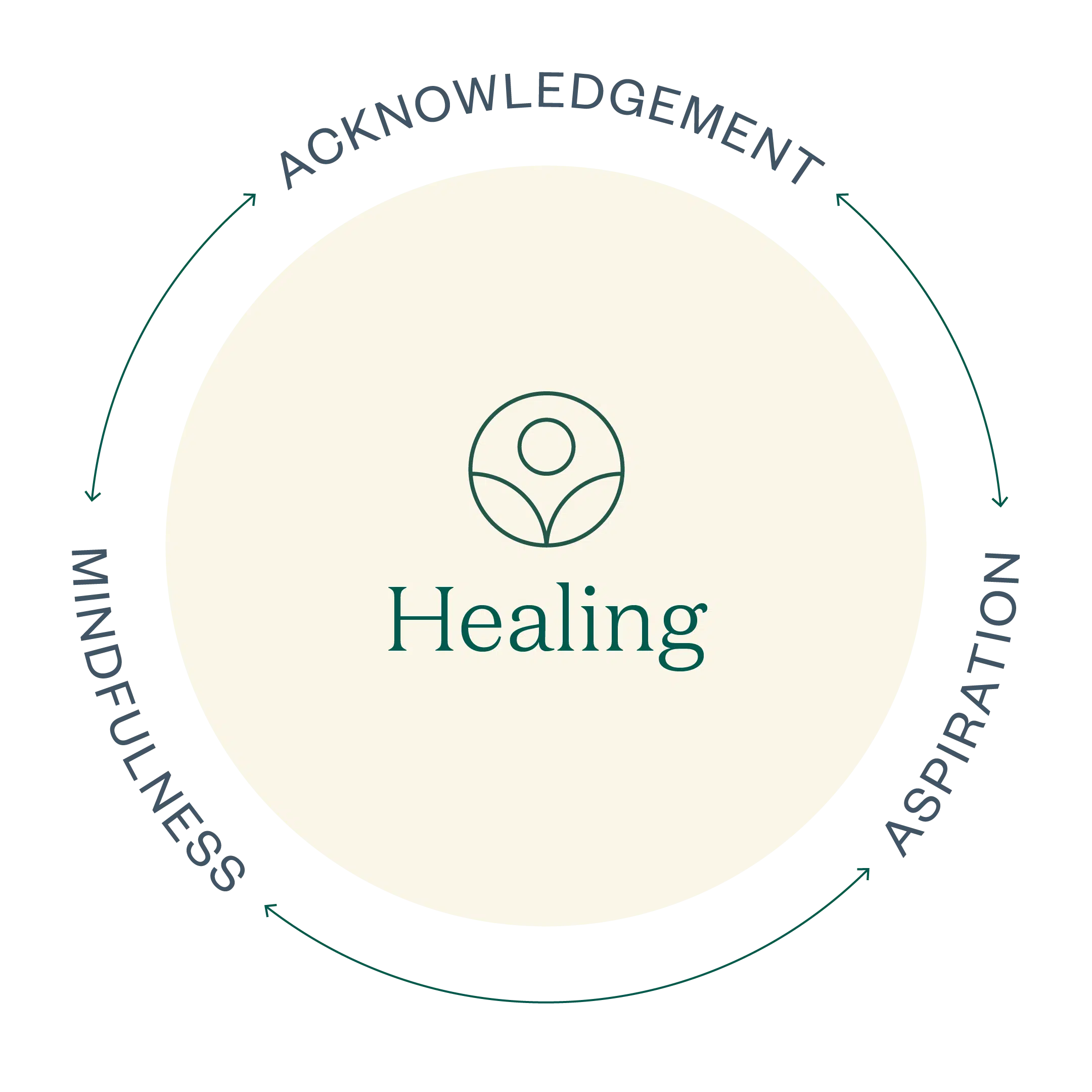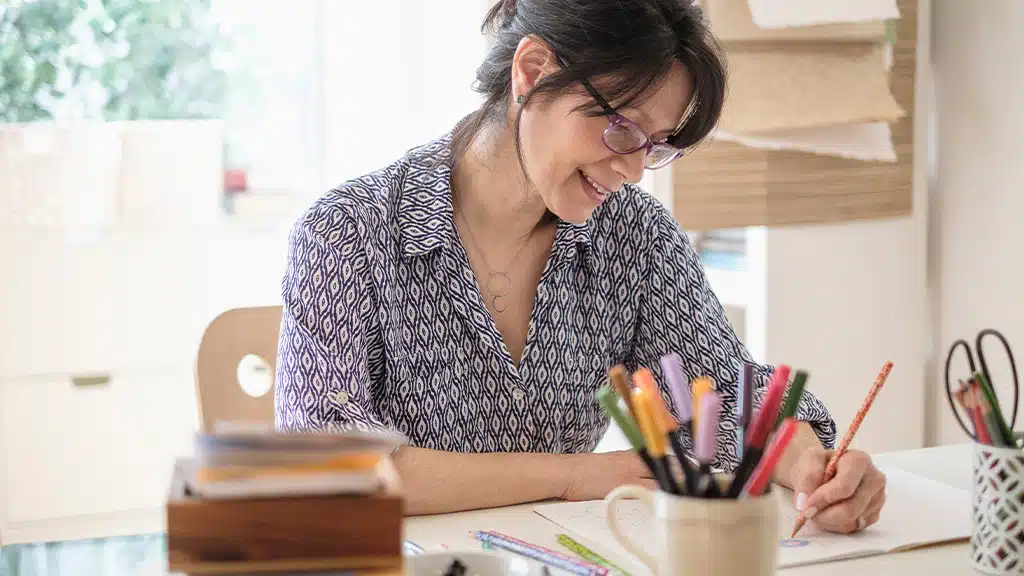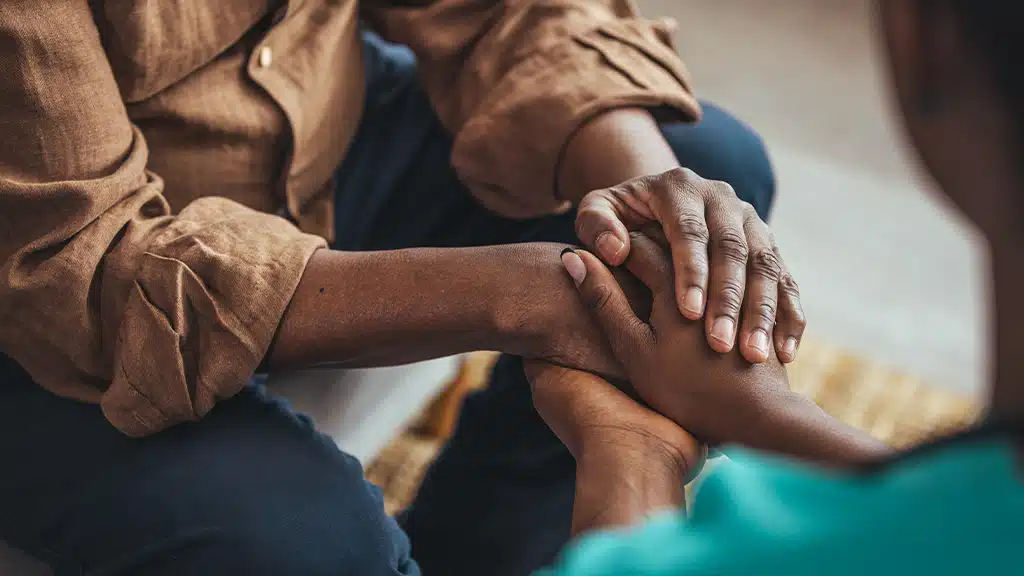Saprea > Online Healing Resources > Our Approach >Acknowledgement and Healing From Sexual Abuse
Acknowledgement
Looking at the Past and Present With Clarity
Acknowledgement asks you to look back on your life all the way up to the present and reflect on your experiences. In particular, it may be helpful for you to ask yourself:
“When it comes to the trauma I experienced as a child, what might I need to acknowledge?”
This question will likely lead you to others:
- “How was/is my life affected by the trauma?”
- “How were/are my relationships affected by the trauma?”
- “How did/does my body manifest the effects of the trauma?”
- “What coping strategies did/do I employ?”
Answering these questions with clarity (meaning that you allow yourself to be clear and honest with yourself) can be the key to identifying the next steps you need to take in order to make progress in your healing. For example, one survivor might examine these questions and write:
“How was/is my life affected by the trauma?”
I’m on edge all the time. I lack the energy or interest to do anything outside of work because I focus all of my efforts on managing my anxiety and anticipating the next panic attack.
“How were/are my relationships affected by the trauma?”
I need to keep people at a distance because I can’t risk getting hurt or feeling betrayed again. The one exception is my sister, who believed me when I told my family about the abuse.
“How did/does my body manifest the effects of the trauma?”
I have chronic physical pain in my neck and shoulders. I also struggle with digestive issues and tend to wake up in cold sweats during the night.
“What coping strategies did/do I employ?”
The best way to distract myself from my anxiety and chronic pain is to spend hours at a time getting lost on social media by seeking out heated Facebook arguments. I also sometimes take an Ambien in the middle of the day to sleep through the afternoon.
Showing Yourself Compassion
Acknowledgement could look something like this:
- Clarity: “I drink large amounts of alcohol to cope with emotions that I don’t want to feel, specifically those related to my abuse.”
- Self-Compassion: “My drinking has been a way for me to cope with feelings and memories that are very painful. I’m not damaged or weak; I’m human and I can learn different ways to cope with these feelings and memories.”
- Clarity: “In order for me to work through those feelings and memories, I will have to drink less alcohol. This will be challenging for me.”
- Self-Compassion: “I want to feel better for me. I’ve done the best I could do for where I’ve been, and I can make changes to be closer to where I want to be. I will take it one day at a time as I make small adjustments.”
Acknowledgement Is Part of the Cycle of Healing
Healing is a process that involves stages or steps. And more often than not, those stages or steps are repetitive. This means that Acknowledgement isn’t a one-time thing. As you work through healing, acknowledging where you are and where you’ve been, intentionally focusing on healing, and working on goals for the future, it will be helpful for you to cycle back to Acknowledgement to help you see the progress you’ve made, as well as to make adjustments or pivots. Ideally, Acknowledgement can become a way of daily living, but it may take some time and practice to feel like you are looking at the past and present with clarity and self-compassion. Keep practicing; Acknowledgement may just be the first step you’ll take in embracing and accepting your true self.
As you practice Acknowledgement, you may find that you are more prepared to engage in the healing practices of Mindfulness and Aspiration. Each of these practices has its own role to play in your healing, and these practices are beneficial to you regardless of where you are in your healing journey.

How Can I Practice Acknowledgement?

Creative Expression

Navigating Your Relationships
